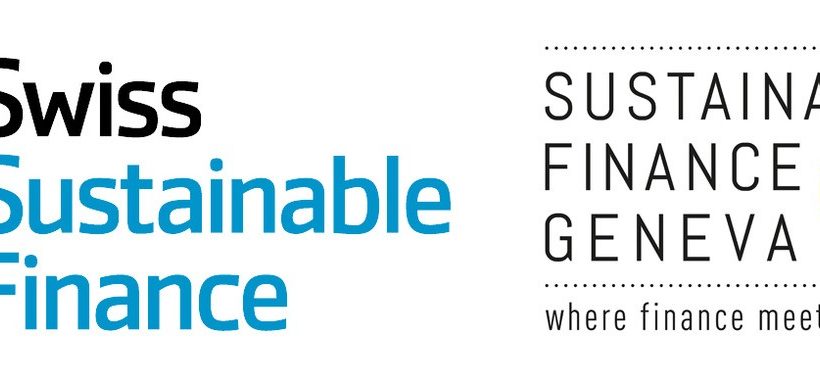
Sustainable investments by Swiss pension funds: where do we stand?
The Federal Council confirmed in its report of August 30, 2023 that Swiss law neither prohibits nor prevents pension funds to implement sustainable investment strategies. As a result, in response to a parliamentary postulate calling for a revision of the law, the Swiss government concluded that the existing framework is sufficient. This contribution will present the conclusions of the report and discuss some (still) pending issues.
1. Framework for investing pension fund assets – overview
The investment guidelines set out in the Ordinance on occupational retirement, survivor’s and invalidity pension plans (Articles 53 et seq. BVV 2) list authorized investments and set limits based on debtor or product types. The aim of these precise guidelines is to ensure that pension fund assets (and ultimately the assets of the insured persons) are managed according to principles of diversification and risk mitigation.
Several parliamentary proposals have been submitted in recent years with the aim of revising and simplifying the investment guidelines set out in the BVV 2. The parliamentary postulate 19.3950 of June 26, 2019 “Encouraging sustainability through investment regulations adapted to current realities” [1] argued that the BVV 2 provisions on permitted investments (Articles 53 et seq. BVV 2) hindered the effective implementation of sustainable investment strategies.
Through this parliamentary postulate, the Federal Council was called to revise the BVV2 to facilitate the implementation of sustainability-oriented strategies. As a safeguard, to limit possible misuse, the postulate proposed the application of the prudent investor rule, a concept originating in Anglo-Saxon law which is also to be found in the Ordinance (Article 50 BVV 2). This general principle would ensure prudent and diligent management in the interests of the insured persons.
Given the volume of pension fund assets in Switzerland [2], how these assets can be managed is an important issue. Therefore, from the standpoint of climate change for instance, enabling sustainable investment strategies to have a wider reach could probably accelerate the transition towards a net-zero economy.
2. The response from the Federal Council
In response to the parliamentary postulate 19.3950, the Federal Council published the report “Do the investment regulations of the Ordinance on Occupational Retirement, Survivor’s and Disability Pension Plans (BVV 2) stand in the way of sustainable investments?” on August 30, 2023.[3]
The Federal Council rejects the assumption that Swiss pension law is too restrictive and prevents the full implementation of sustainable investment strategies. In the government’s view, the current legislative framework is sufficient and appropriate to enable pension funds to effectively pursue sustainable investment strategies.
As a preliminary comment, the Federal Council addresses a more general issue (which is subject of much debate in the United States): are the fiduciary duties owed in the context of pension funds administration and management compatible with sustainable investment strategies?
In accordance with Article 51b para. 2 of the Federal Act on occupational retirement, survivor’s and disability pension plans (BVG), those responsible for administering a pension fund or managing its assets must respect the fiduciary duty of care incumbent on them, and serve the interests of the insured. The report argues in favor of an interpretation of fiduciary duties that considers the financial risks associated with sustainability: when defining or implementing an investment strategy, in order to comply with fiduciary duties, the pension fund’s governing bodies and asset managers must take into account the risks associated with sustainability issues. In other words, compliance with fiduciary duty requires the integration of ESG aspects into the pension fund’s investment strategy; a strategy strictly focused on portfolio performance would not comply with fiduciary duties.
This interpretation is no novelty. The Swiss Association of Pension Institutions (ASIP) considers that (as part of the fiduciary duty) the risks to be analyzed by a pension fund include those related to economic, environmental, climate and social aspects, as well as governance.[4] Moreover, without basing its analysis on the fiduciary duties of the institutions concerned, FINMA also considers that appropriate risk management includes taking into account climate-related financial risks.[5]
Secondly, the report looks more specifically at the question of the postulate: is existing legislation on pension funds too restrictive so that it hinders, or even prevents, sustainable investment?
As mentioned earlier, the Federal Council’s answer is no. On the one hand, it notes that two legislative changes, which came into force, in October 2020 and January 2022 respectively, have increased the range of authorized investments by pension funds. The first amendment introduced the right to invest in infrastructure investments or projects, such as energy or mobility infrastructures [6]; the second amendment to the BVV 2 refers to the right to invest in unlisted Swiss companies (investment in the form of private equity or private debt).[7] The amendments of the law were intended to foster sustainability strategies.
The report concludes that the reluctance on the part of some pension funds to adopt sustainability-oriented investment strategies is not due to regulatory obstacles, but rather to economic considerations: the fear of having to bear additional costs in connection with the implementation of such strategies, as well as the fear of achieving poorer performance.[8]
3. Further questions to explore
The Federal Council’s report has the merit of reminding us that compliance with fiduciary duty requires that pension funds and their trustees take into account ESG risks when assessing investment risks. There is thus a consensus in Switzerland on the importance – and necessity – of including ESG aspects as part of risk analysis.
For the rest, the Federal Council is taking a back seat, which leaves some critical issues still waiting for an answer. Two topics are worth mentioning:
- The report adopts a narrow interpretation of the notion of fiduciary duty. It focuses on the financial risk exposure (e., the risks that may arise from non-sustainable investments), but it does not discuss whether the impact of pension funds’ investments should also be part of the fiduciary duty (principle of double materiality).[9] Yet, the Federal Act on climate, which comes into force on January 1st, 2025, states that the transition to a zero-carbon economy implies a reorientation of financial flows towards sustainable investments.[10] Clarifying the scope of fiduciary duties to include impact considerations is likely to help to facilitate such a reorientation of financial flows.
- The report of the Federal Council concludes that the existing Swiss pensionlaws are sufficient and appropriate to enable pension funds to implement sustainability strategies. However, according to the report, the current legislative and regulatory environment is perceived by some pension funds as unclear or insufficient to enable them to fully implement sustainability strategies. This would seem to argue in favor of at least some legislative clarification on how management of pension assets and sustainability can be aligned.
[1] Parliamentary postulate 19.3950 – Encouraging sustainability through investment regulations adapted to today’s reality (in French), Environment, Spatial Planning and Energy Committee of the Council of States (ESPEC-S).
[2] CHF 1,159 billion in 2021 (see Federal Statistical Office press release, December 20, 2022).
[3] “Do the investment regulations of the Ordinance on Occupational Retirement, Survivor’s and Disability Pension Plans (BVV 2) stand in the way of sustainable investments?“, Report of the Federal Council in response to the postulate 19.3950 of the ESPEC-S (in French).
[4] See ESG Reporting Standard for pension funds, ASIP, December 13, 2022 (in French).
[5] See 2016/01 FINMA Circular “Disclosure – banks” and 2016/02 FINMA Circular “Disclosure – insurers (public disclosure)” (in French).
[6] Article 53 para 1 (dbis)and para 2 BVV 2.
[7] Article 53 para 1 (dter) BVV 2.
[8] These elements of the report are based on the conclusions presented in a study commissioned by the Federal Social Insurance Office (see Research report “Effects of a long period of low interest rates on occupational benefits” (in French), June 21, 2022).
[9] In Switzerland, double materiality applies in the context of extra-financial reporting (Articles 964a et seq. of the Swiss Code of Obligations).
[10] Article 1, letter c of the Federal Climate Act.
Your contacts at OBERSON ABELS SA
Antoine Amiguet
T +41 58 258 88 88
Philipp Fischer
T +41 58 258 88 88
Sonia De la Fuente




